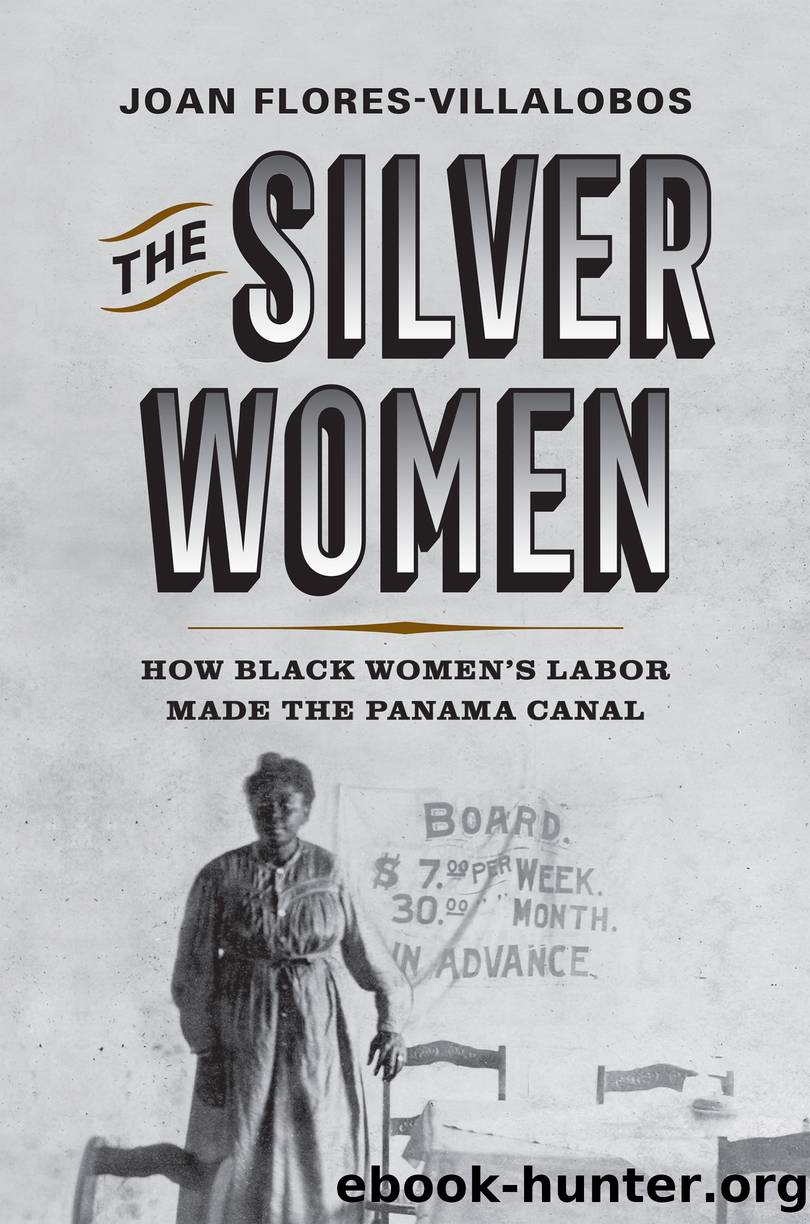The Silver Women by Joan Flores-Villalobos

Author:Joan Flores-Villalobos
Language: eng
Format: epub
Publisher: University of Pennsylvania Press, Inc.
On a ship bound for Panama, American journalist Albert Edwards heard a chorus of West Indian voices singing the first song. He noted that the men on board sang it âwith great fervorâ despite the gloomy theme. In his Harperâs Weekly article about the journey, he referred to the traveling West Indians as a âcargo of black ivory,â characterizing these Black men as valuable commodities to be transported to the Canal. West Indian migrants heading to Panama understood the risks of death and disease thereâthey knew that the Yankees saw them as no more than expendable laborâbut they weighed these concerns against the potential economic gains. Workers chanted the second ditty as they left plantations in Barbados, criticizing the low wages they received for farm work on the island. And as that song expressed, they wanted more wages and they wanted them now. Rather than a disincentive, these songs served as a rallying cry for workers gathered on steamboats departing for Colón. In the public arenas of the Caribbean, these songs created an image of the Canal project that tied death and economic promise together with a discourse of masculine worthiness.16
West Indians were right to be wary of Panama. A former white American track master of the Panama Railroad, S. W. Plume, described the mortality in the Canal Zone: âWe used to run one train in the morning out of Colón up into Monkey Hill [where Silver employees were buried, later to become Mount Hope Cemetery]. Over to Panama it was the same wayâbury, bury, bury, running two, three, four trains a day with dead Jamaican niggers all the time. I never saw anything like it.⦠They die like animals.â17 Plumeâs quote describes not only the pervasive atmosphere of death in Panama but also the general disregard American managers had for the lives of these Black laborers. While awed by the volume of casualties, Plume nevertheless saw these men as subhuman and devalued their lives and deaths. Plume skirts placing responsibility for these deaths on the American project, instead suggesting that it was part of Black workersâ nature to âdie like animals.â And indeed, these dead men were treated like animals. West Indian Constantine Parkinson remembered how bodies were dug up after an explosion, saying âIt was a very awfull sightâ but also noting how commonplace death had become to everyone around him. Ultimately, Parkinson suggests, these bodies were treated as disposable because âall the boses want is to get the canal build.â18 For West Indians, the casual deaths of the early construction period instilled a deep trauma. Every single respondent to the Isthmian Historical Societyâs 1963 competition for âthe best true stories of life and work on the Isthmus of Panama during the constructionâ vividly recalled West Indiansâ proximity to death. Amos Park wrote, âThose days were horrible days to remember. Those were the times you go to bed at night and the next day you may be a dead man.â19
The numbers verify the ubiquity of Black deaths during this period.
Download
This site does not store any files on its server. We only index and link to content provided by other sites. Please contact the content providers to delete copyright contents if any and email us, we'll remove relevant links or contents immediately.
| Belize | Costa Rica |
| El Salvador | Guatemala |
| Honduras | Nicaragua |
| Panama |
Cat's cradle by Kurt Vonnegut(15339)
Pimp by Iceberg Slim(14489)
4 3 2 1: A Novel by Paul Auster(12377)
Underground: A Human History of the Worlds Beneath Our Feet by Will Hunt(12090)
The Radium Girls by Kate Moore(12019)
Wiseguy by Nicholas Pileggi(5771)
The Fire Next Time by James Baldwin(5432)
Perfect Rhythm by Jae(5398)
American History Stories, Volume III (Yesterday's Classics) by Pratt Mara L(5301)
Paper Towns by Green John(5181)
Pale Blue Dot by Carl Sagan(4996)
A Higher Loyalty: Truth, Lies, and Leadership by James Comey(4955)
The Mayflower and the Pilgrims' New World by Nathaniel Philbrick(4495)
The Doomsday Machine by Daniel Ellsberg(4485)
Killers of the Flower Moon: The Osage Murders and the Birth of the FBI by David Grann(4443)
The Sympathizer by Viet Thanh Nguyen(4385)
Too Much and Not the Mood by Durga Chew-Bose(4338)
The Borden Murders by Sarah Miller(4315)
Sticky Fingers by Joe Hagan(4189)
